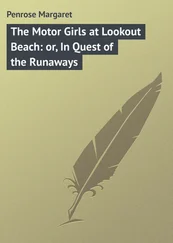Three white lifeboats drifted slowly away from the flames in the direction of the crowd of boats that had by now circled the ferry. From the terrace, it was only possible to see a raised arm, an upright torso, a blur of color from panicked movement. Most of the people at the bar had come to stand at the wall, drinks in hand, conversations lost. He felt knees pressing into his back as people strained to watch the fire. More boats circled in the water. A firefighting boat raced in from the east.
“I’ve never seen anything like this,” the woman said.
A person jumped from the boat to the water. Lennart placed both of his hands out to steady himself against the table. The woman put her hands on top of his. Her hands were warm and the table was warm from the sun. One of the enormous Viking Line ships, inbound from the archipelago, approached, its passengers unaware of the tragedy they would soon witness.
Lennart’s phone rang again. It vibrated loudly against the table. He started to reach for the phone. The woman gripped his hands tighter. “Don’t,” she said. “Everything is going to be fine.”
In the Night of the Day Before
Martin was in a private room at the Sakura Karaoke Bar with fifteen people who worked for him. “Hotel California” was next on the list. The song’s title blinked on the small television screen. Behind the title, cherry blossoms bloomed in time-lapse. Sandra, his secretary, had made him promise that he’d sing “Hotel California.” Martin was retiring and Sandra had arranged a night out to celebrate. She’d invited Martin’s whole department and they’d all come, which Martin appreciated. Even Lennart, who’d only just started at the Stockholm office, had made it. Martin’s wife, Louise, had not wanted to come and he was happy for that.
Sandra picked the song because Martin had once been to California. That was before he started working for Ericsson. He’d been sent for a training course. The course was in Los Angeles, though the company was located in Silicon Valley. After the course had finished, he stayed in California through the end of the week. He rented a car and drove north from Los Angeles on Highway 1, which everyone at the course told him he should drive. He was excited to visit San Francisco. It was a city he thought he knew well from television. Highway 1 was very beautiful but the driving was slow.
In San Luis Obispo, he met a young man at a bar. The young man said his name was Cesar and spoke with an accent Martin had never heard before. He knew Cesar would ask for money eventually, but Martin was on vacation and certain he deserved this, so he put the thought of money out of his mind and thought instead of Cesar’s tanned face and slender wrists. He had difficulty understanding what Cesar was saying in the loud bar. The bar was on Chorro Street, not far from Mission San Luis Obispo. The broad white walls of the mission were yellow under the streetlights when he and Cesar walked past it to his motel.
From the window of the room, there was a view of Highway 1. Cesar undressed and Martin watched this and also the headlights that flashed in through the gap between the wall and the thick floral-patterned curtains he’d drawn immediately after entering the room.
When it was over, he lay awake and listened to Cesar breathe. Cesar’s chest was smooth except for a small patch of coarse black hair and Martin watched this move with each breath. A vein in Cesar’s neck pulsed steadily. Martin reached out and put his fingertips softly on it. He felt the flutter of the boy’s blood, the rise and fall of his chest.
The next morning, he woke up to an empty bed. He’d expected this. A piece of yellow paper had been ripped out of a brochure for wine tasting on the central coast and lay on top of Martin’s wallet, two of the ripped edges beginning to curl in the heat. On the piece of paper, Cesar had written: “Thanks.” Under this word, he’d drawn a small heart. Martin tossed the paper into the trash can.
It was just before nine. He showered and dressed. Then he made the bed, pulling the top sheet tight across the yellowed bottom sheet and tucking the comforter in between the bed and the wall. The pillows were uneven lumps. He looked at the bed and knew that the housekeeper would have to undo his work, but making the bed was a habit he could not break. He checked out early.
Over a cup of coffee from a McDonald’s he watched two pigeons fight over a hamburger wrapper in the parking lot. Then he continued driving north, but now along 101. He passed through cities with names like Atascadero and Paso Robles. He pronounced the name of each city aloud as he passed. He didn’t know whether he was saying the words correctly. By that afternoon, he was in San Francisco. He checked in to the Holiday Inn on Van Ness, and requested a room on the top floor. From his room, he could see the bay and the blinking red lights on the towers of the Bay Bridge, which he mistakenly assumed was the Golden Gate.
He ate dinner at the restaurant bar. The halibut was dry. The bartender claimed it was caught that afternoon, but Martin didn’t believe this. He avoided looking at the other guests.
In the morning, he took the ferry to Alcatraz. On board, he bought a ticket for the prison tour. The boat ride was choppy and cold. He stayed inside the passenger cabin and watched the waves and the seagulls that hovered about the boat.
On the island, he saw the barracks and admired a dilapidated water tower. Ivy grew up its trellis and over the rusted supports and into the rotting wooden base of the tank. The wind was blowing hard from what seemed like all directions at once. There was a whole city on Alcatraz, abandoned to disuse and decay. He walked past foundations and former garden plots and two rusted metal kitchen chairs resting on their backs at the foot of a thick bush.
Inside the prison, he volunteered to demonstrate captivity for the group. A nervous woman named Melanie, whose daughter had pushed her forward when the tour guide asked for volunteers, joined him in the cell. Melanie answered “Salinas” when the tour guide asked where she was from. The two of them entered the cell and turned to face the group. The tour guide asked Martin what his name was. He looked at the small crowd of people outside the cell and he looked at the tour guide. Then he said, “My name is Robert.”
Then the tour guide asked Martin where he was from. He said, “Stockholm.” And then added, “In Sweden.” The cell door rolled into place.
The tour guide told the group to imagine what life would have been like for the prisoners. “This is no Salinas,” the guide said. “No Stockholm.” Martin held a cell bar in each of his hands. They were cold and rough. On the back wall of the cell a small hole through which a prisoner had once escaped. The tour guide recited a brief explanation of how the prisoner had created the hole and concealed it from the prison guards.
Then the tour guide made a big show of setting Martin and the woman free from jail. “Melanie,” he said, and smiled at the group. “You served your time.” The tour guide then turned to Martin. “Stockholm,” he said. “You are rehabilitated.” The tour guide then pulled a lever at the end of the block of cells and the door opened. When Martin stepped free from the cell, the tour guide leaned forward and whispered, “I’m sorry. I forgot your name.”
On the ferry back to Pier 33, Melanie approached him. Her daughter was behind her, nodding her head in an encouraging way. “Hello,” Melanie said. She took a seat beside him and held out her hand for him to shake. He took her hand, shook it, and said, again, “My name is Robert.” He pronounced Robert the American way. He thought this would make it easier for Melanie to understand him. She said the name back to him. It sounded unnatural to him and he regretted immediately not giving her his real name. “We were locked up together,” she said.
Читать дальше











